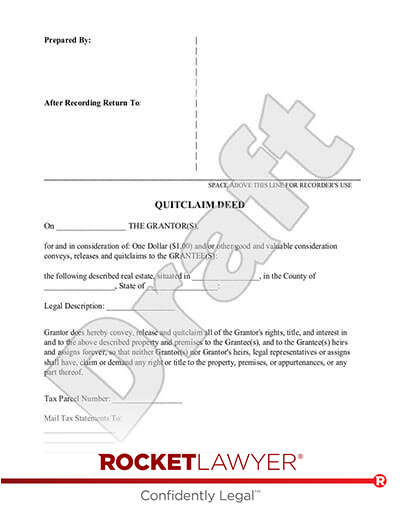How Property Is Divided in a Divorce
If spouses cannot agree on property division, the court will step in and divide marital property according to state law. Across the United States, states follow one of two main systems: community property or equitable distribution. Understanding which system applies in your state helps set expectations early in the process.
Community Property
In community property states, most property and debts acquired during the marriage are considered jointly owned by both spouses. In a divorce, community property is generally divided equally (50/50).
Each spouse typically keeps their separate property, which usually includes assets owned before the marriage or received individually as a gift or inheritance. State‑specific rules and exceptions apply.
Equitable Distribution
In equitable distribution states, marital property is divided fairly, though not necessarily equally. Courts look at factors such as:
- Each spouse’s income and earning capacity
- The length of the marriage
- Contributions to the marriage, including caregiving and homemaking
- Each spouse’s future financial needs
Because “equitable” does not mean “equal,” one spouse may receive a larger share of marital property depending on the circumstances.
Community Property vs. Equitable Distribution States
The table below shows which states follow a community property system and which use equitable distribution.
| Community Property | Equitable Distribution |
|---|---|
| Arizona, California, Idaho, Louisiana, Nevada, New Mexico, Texas, Washington, Wisconsin | Alabama, Alaska, Arkansas, Colorado, Connecticut, Delaware, Florida, Georgia, Hawaii, Illinois, Indiana, Iowa, Kansas, Kentucky, Maine, Maryland, Massachusetts, Michigan, Minnesota, Mississippi, Missouri, Montana, Nebraska, New Hampshire, New Jersey, New York, North Carolina, North Dakota, Ohio, Oklahoma, Oregon, Pennsylvania, Rhode Island, South Carolina, South Dakota, Tennessee, Utah, Vermont, Virginia, West Virginia, Wyoming, and the District of Columbia |
Dividing the Marital Home in a Divorce
For many couples, the most emotional and complicated part of property division is deciding what happens to the family home. The outcome depends on state law, finances, other assets being divided, whether children are involved, and how well spouses are able to work together.
Who gets the house in a divorce?
There is no one‑size‑fits‑all answer. In general:
- In community property states, the marital home is usually treated as jointly owned, and each spouse is entitled to half of its value.
- In equitable distribution states, a judge divides the home and other assets fairly, which may not result in a 50/50 split.
Because outcomes depend heavily on individual circumstances, legal guidance can help clarify what is realistic in your state.
Can I stay in the home with my children?
Courts often recognize the importance of stability for children. In many equitable distribution states, judges may consider children’s needs when deciding who remains in the family home.
If the divorce is amicable, spouses can also make their own arrangements. Through a Divorce Settlement Agreement, one spouse may stay in the home with the children for a set period of time, sometimes in exchange for adjustments to spousal support or the division of other assets.
How can home equity be divided?
There are several common ways to divide equity in a marital home:
- Buyout through refinancing: One spouse refinances the mortgage and pays the other spouse their share of the equity. This usually requires re‑qualifying for the loan and may affect interest rates.
- Selling the home: The home is sold and the proceeds are divided. This can be handled jointly or by assigning responsibility for the sale to one spouse.
- Delayed sale: Spouses may agree to keep joint ownership temporarily—often until children reach a certain age—while setting rules for mortgage payments, taxes, upkeep, and how proceeds will be divided later.
Can the value of the home be offset with other assets?
Yes. If both spouses agree and there are sufficient assets, the value of the home can sometimes be offset with property such as retirement accounts or savings.
In equitable distribution states, judges have discretion to divide assets fairly after considering factors like income, earning capacity, and custody arrangements. This may result in one spouse receiving the home while the other receives different assets to balance the division.
Can a court force the sale of the house?
Yes. A court can order the sale of a marital home if neither spouse can afford to keep it or if there is no workable way to divide or offset the equity. In practice, forced sales often happen because keeping the home is financially unrealistic for both parties.
Important Things to Know About Property Division
- Definitions vary by state: What counts as marital, community, or separate property differs by location. For example, an inheritance may be separate property in some states but marital property in others if it was mixed with shared assets.
- Property usually isn’t split physically: Courts often assign each spouse a percentage of total value rather than dividing each asset.
- Full financial disclosure is required: Spouses must generally disclose all assets, debts, and income. Hiding property can lead to penalties and unfavorable outcomes.
Getting Help With Property Division
Property division can become complex, especially when real estate, retirement accounts, businesses, or significant debt are involved. Understanding your state’s rules—and how they apply to your specific situation—can help you protect your financial future.
You can use Rocket Lawyer to prepare property‑related divorce documents online or Consult a Legal Pro for more information based on your state’s property division rules.
Please note: This page offers general legal information, not but not legal advice tailored for your specific legal situation. Rocket Lawyer Incorporated isn't a law firm or a substitute for one. For further information on this topic, you can Ask a Legal Pro.
